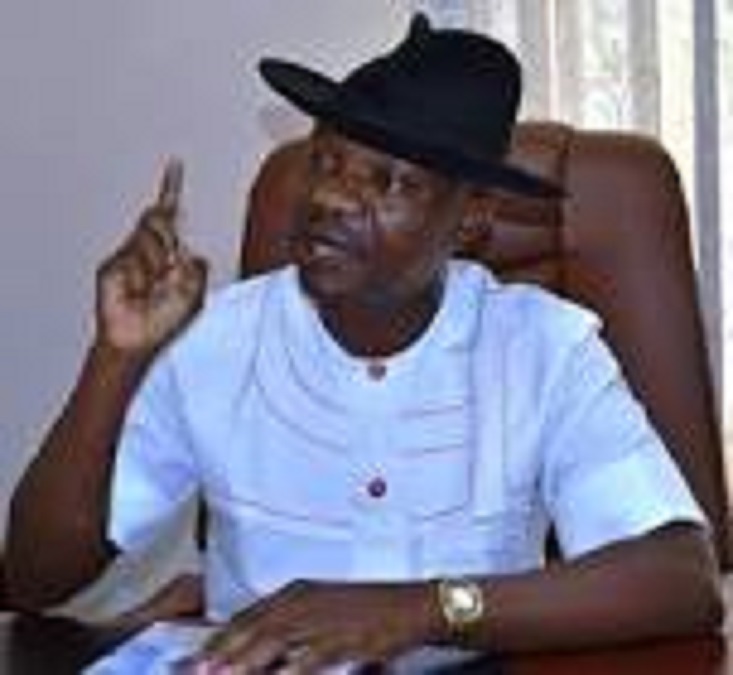Delta State Commissioner for Information, Mr Charles Aniagwu, on Friday, said the state government had restored peace in riverine areas of the state with impactful projects.
Aniagwu who spoke on TVC monitored in Asaba, said the state government held townhall meetings with the people and resolved to take developments to the creeks which were hitherto described as impossible areas to develop.
He said Governor Okowa demonstrated high political will by ensuring that projects were taken to the creeks where most of the oil production in the state take place.
He said most administrations were afraid of the humongous resources that will be deployed to construct a kilometre of road in the creek or to build a structure capable of housing students and people that live in the riverine communities.
“The fear that if such funds are put in these projects they will not be visible to the public but the Okowa led administration has been able to put in a whole lot of resources to build roads in the difficult terrains of the state.
“In the course of his campaigns, the governor went to each of the 270 wards in the state, he listened to the cries of the people and saw the reasons why there were some forms of agitations, particularly in the creeks.
“The moment he came into office, he saw that for him to survive that agitation and have a very peaceful state to implement the Smart Agenda, there is the need to take action.
“In summary, they needed development, they didn’t have roads in the creeks even if it’s their motorcycle they want to use and move around.
“They didn’t have water, functional hospitals in the creeks, they didn’t have functional educational system in the creeks and what did he do, he now said we will provide these.
“If you go to Burutu we were able to give them good schools, we paved all the roads in Burutu town, he moved ahead to provide hospitals and when the people started seeing these things, they gave peace a chance.
“The 20.28km Obotobo I-Obotobo II-Sokebolou–Yokri-Road in Burutu Local Government Area inaugurated by Vice President Yemi Osinbajo in 2019, underscores our commitment to providing infrastructure of the most vital interest and consequence.
“Indeed, the riverside communities of Oporoza, Okerenkoko and Benekrukru, amongst others, have been given a facelift with well-paved roads.
“I can tell you authoritatively that in the last 6 years, no contractor was molested or kidnapped in the creeks of Delta,” he said.
The Commissioner asserted that because the people started seeing the sincerity of the Okowa led administration, the government got lots of cooperation from the youths, traditional institutions, from elders and of course from the women.
“So having been able to take developments to these areas, they now say let’s give this man a level of peace.”
He averred that the people keyed into the Smart Agenda of the governor because of the interaction and equity in distribution of appointments, government projects and programmes
On the issue of free education and quality education in public schools, Aniagwu argued that free education was partially responsible for the fall in education in the country.
“As a country, we are not telling ourselves the truth, not just as a state, education in actual fact cannot become entirely free, whether at the primary or secondary level.
“We need to ask ourselves questions, who owns the child between the parent, government and society and the moment we are able to answer that question, we will now be in a position to determine the responsibility of those who own the child and their respective contributions towards the upbringing .
“To the best of my knowledge, the parents who gave birth to the child, have a share, the society where the children will function have a share, in this case, talking about banks, civil societies, other charitable organisations and of course the government that runs the society,”.
He said that most parents take their children to private schools because they have lost confidence in the public schools.
“If the government is able to provide infrastructure by way of building the schools and employ the teachers, the parents should be able to have a token that they pay.
“We talk about free education, but those of us who are partially privileged are sending our children to private schools.
“Why are we doing so, because the public schools we are advocating should be free, is free but hardly qualitative across the country ,” Aniagwu said.
“Obviously, if you ask me, I will suggest that the Nigerian nation need to further examine relevant educational policies”. Aniagwu further submitted.




